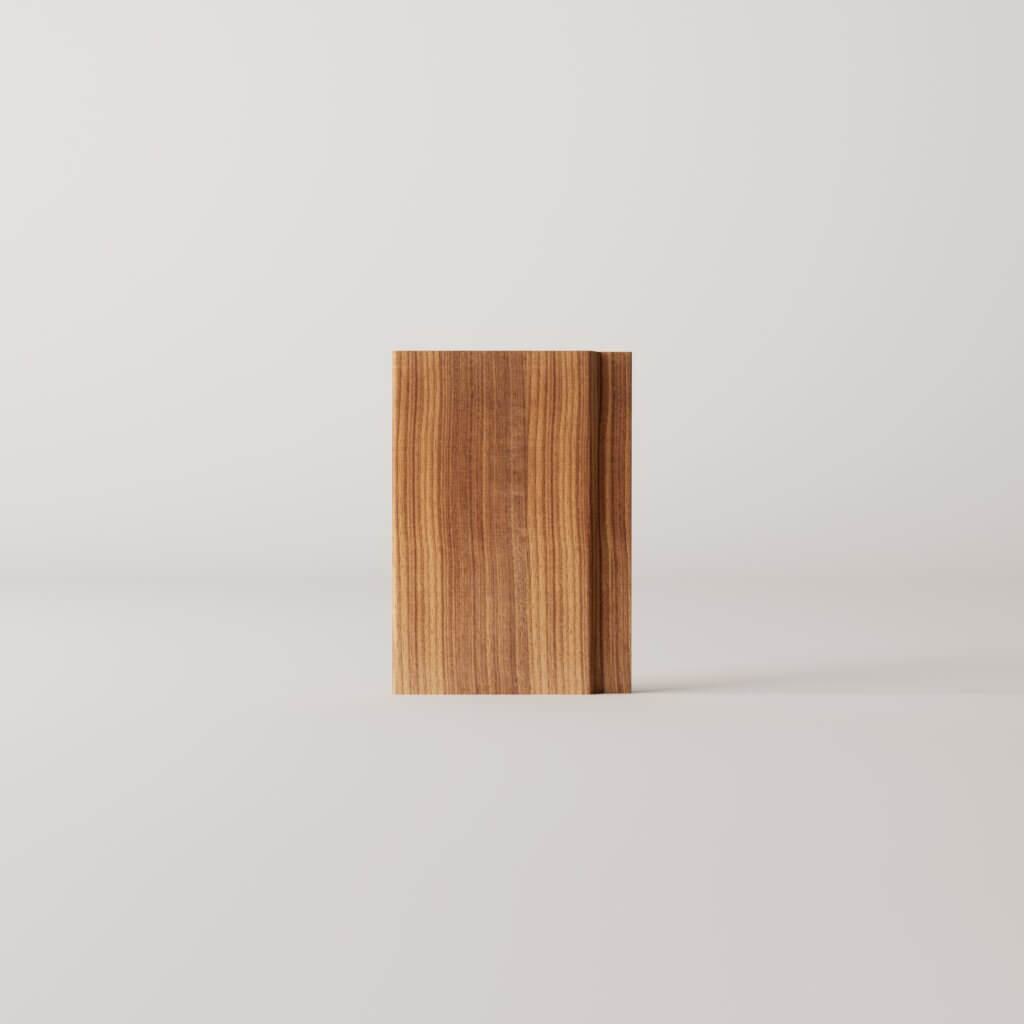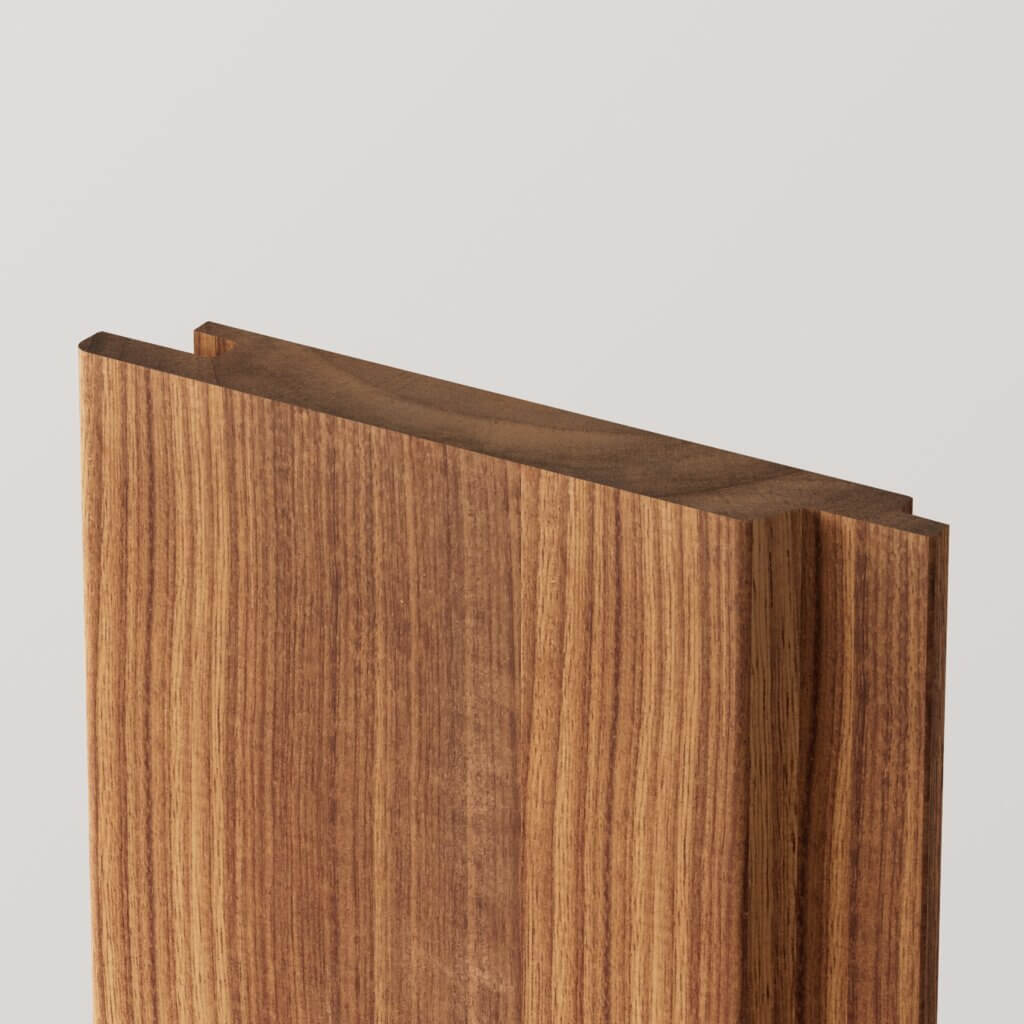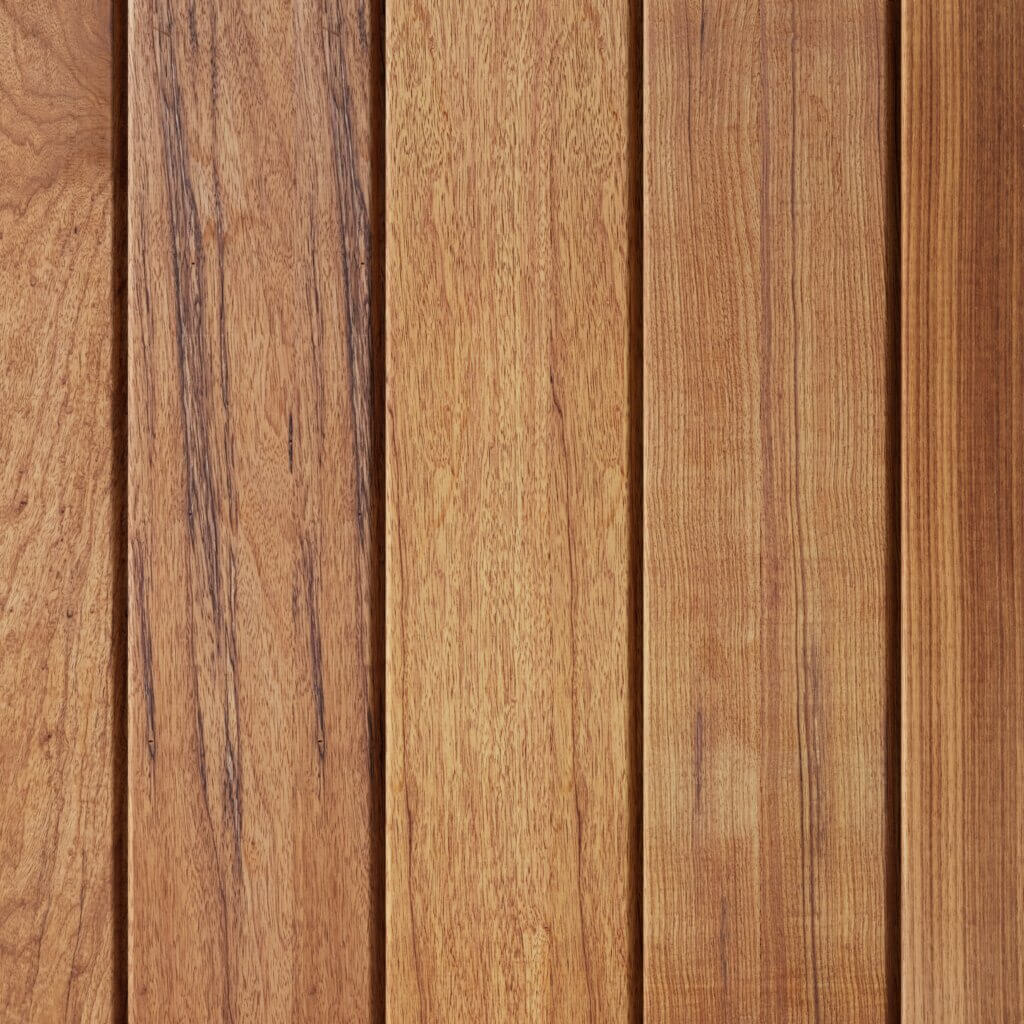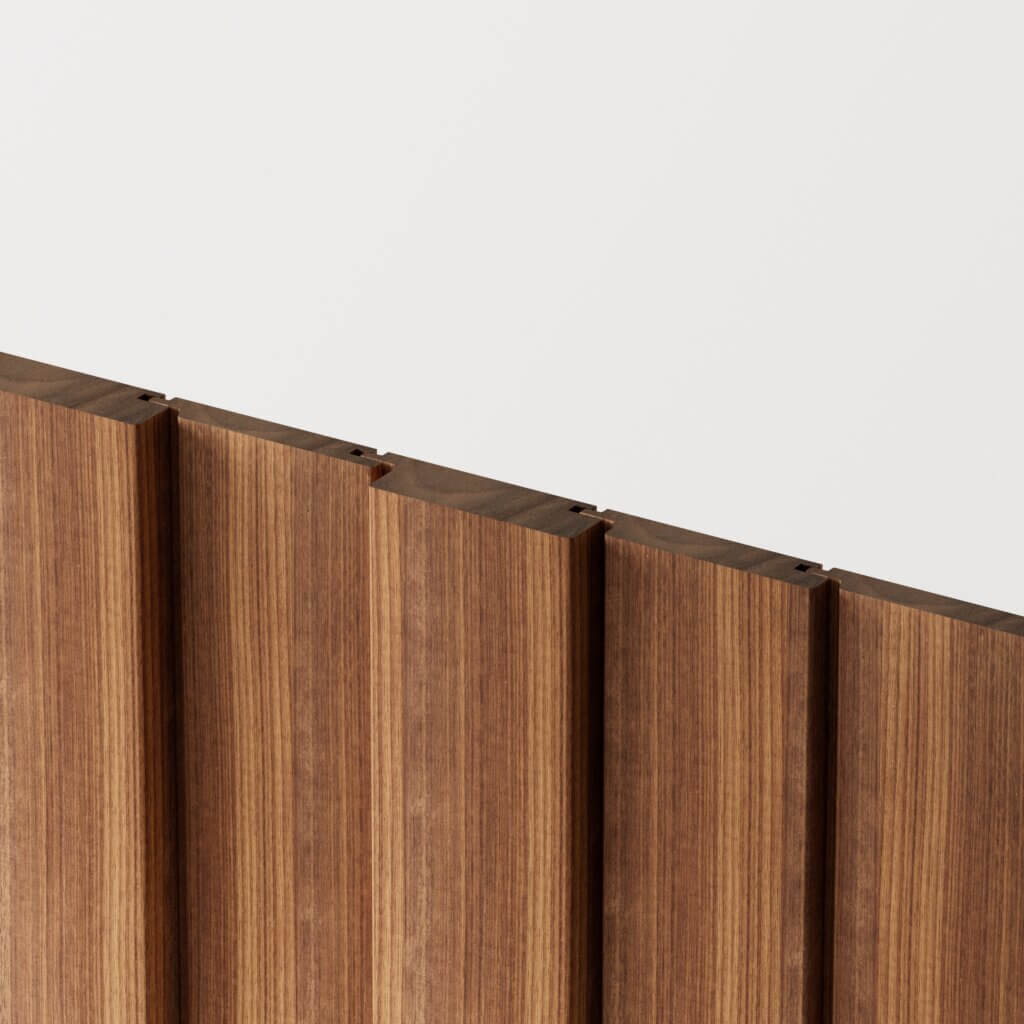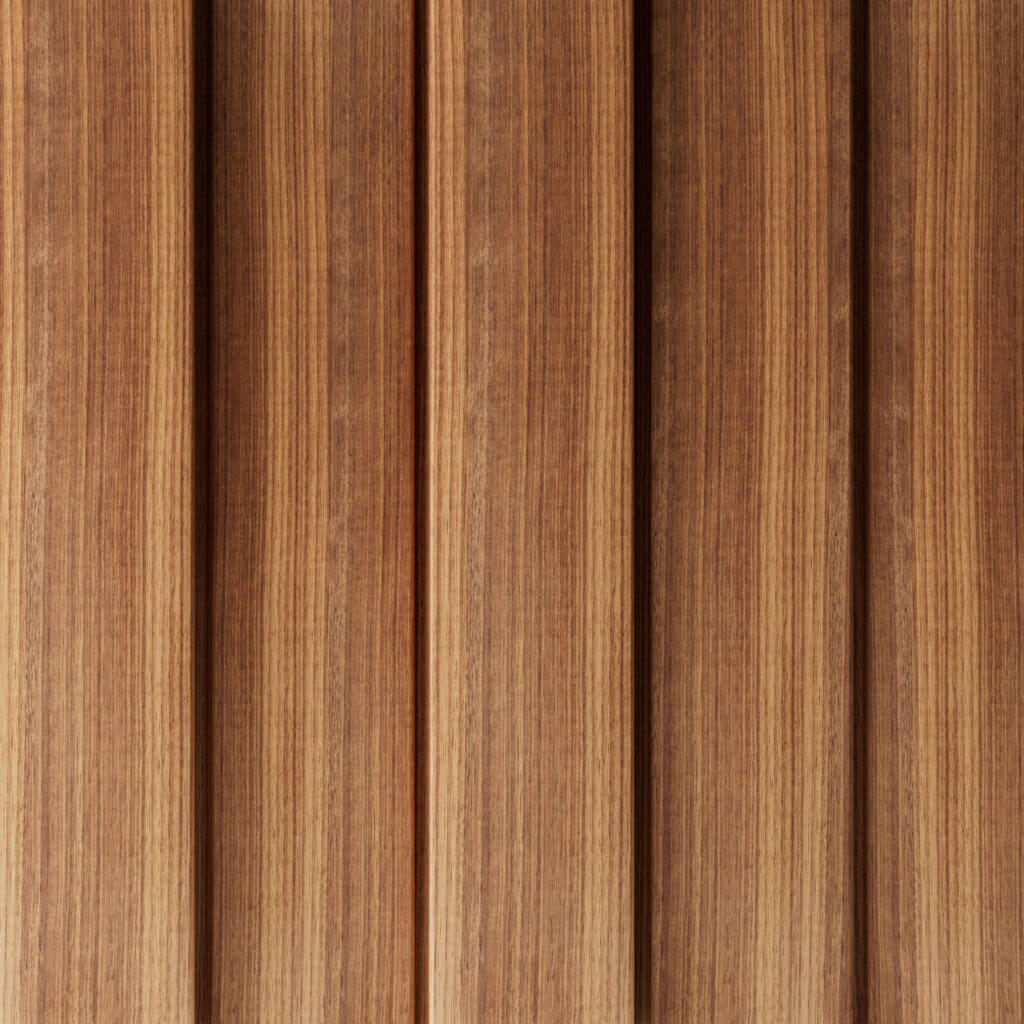Platonium 11 is a profile suitable for concealed fastening. The extended tongue of the P11 provides space for a screw or nail, which is covered by the groove of the next board. The result is a façade with no visible screw or nail holes. The reverse side of Platowood Spruce Platonium 11 can be identified by a marking, either a perforation line or a groove.
